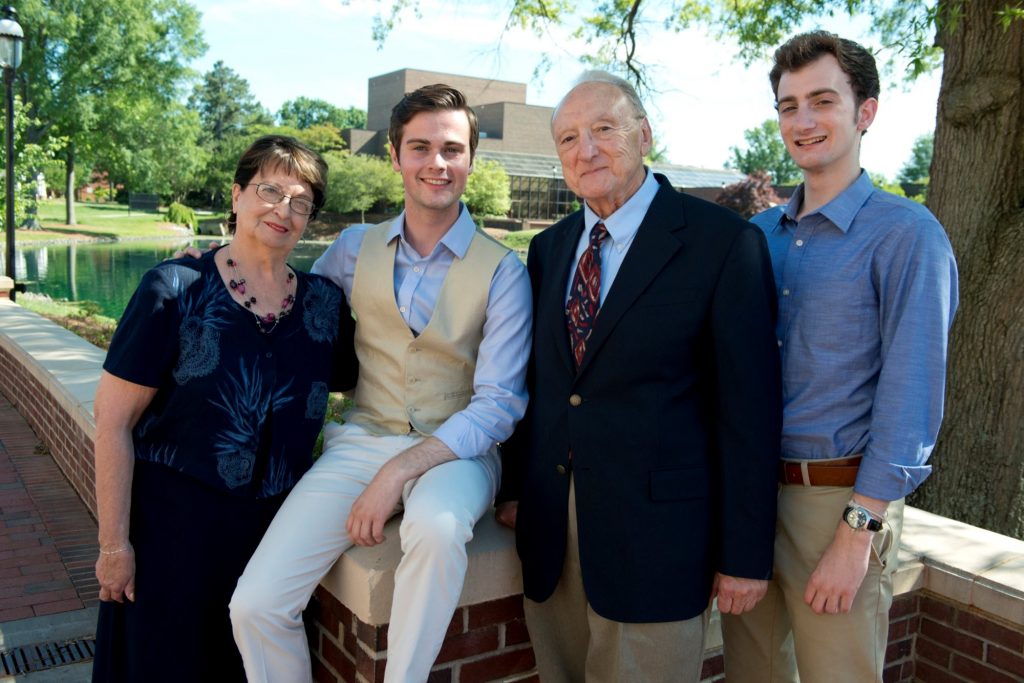Parts of Daniel Sheehan’s childhood were filled with heartbreak and hurdles that tested the human spirit. The 2015 Elon graduate has since made it a personal mission to help overcome systemic challenges similarly faced by others.

Growing up, Daniel Sheehan wore the weight of chronic illness, financial hardship and instability faced by his family. As his mother battled both cancer and multiple sclerosis, he moved across the U.S. eight times. Then, at age 13, he and his brother moved in with his maternal grandparents in North Carolina prior to arriving at Elon five years later. As a 2015 graduate and recipient of the Coro Fellowship in Public Affairs, which cultivates young leaders by placing them within government, corporate, political, labor and nonprofit organizations across the nation, he plans to continue his education and career with experiences that build more just and equitable systems — especially for those who need support the most.
“My motivation for fostering connections and learning about developing systems comes from multiple points throughout my life where the system didn’t work,” Sheehan says. “I saw those challenges as a 7-year-old, as an 8-year-old, as a 12-year-old, and so on — and in college chose not to ignore obstacles, but to question why they exist. In doing so, I was able to explore parts of myself and parts of the world around me in a more critical way.”
Through his lived experience, reflection and family support, he discovered a passion for advocacy that he brought with him to Elon as an Odyssey Scholar and Leadership Fellow. Once in college, Sheehan immersed himself in studies related to communications and its power within civil rights movements, particularly the fight for LGBTQIA+ equality as he began his own journey of coming out. He also studied in Costa Rica; performed with Vital Signs A Cappella at Carnegie Hall; worked for Live Oak, a student-run public relations agency, and Elon Admissions as a University Guide; facilitated Elon’s first-year summer experiences focused on leadership development through weeklong outdoor excursions; volunteered with ElonTHON, orientation, the Boys & Girls Club and various LGBTQIA organizations; and helped launch Elon’s chapter of the Delta Upsilon fraternity.
That level of determination and engagement was something his faculty and staff mentors immediately noticed. It took many discussions with professors and administrators to narrow his academic interests. It’s not that Sheehan didn’t know what he wanted to do. He simply didn’t know the best path to take. “He’s got incredible perseverance,” says Associate Professor Judy Esposito, Sheehan’s adviser in the Department of Human Service Studies. “He can be met with all kinds of obstacles, and he views them as challenges instead of barriers.”
Sheehan’s mother, Susan, didn’t live to see him graduate in May. She died in April 2014 from multiple sclerosis, after a battle spanning nearly two decades. Seated Under the Oaks, however, were those closest to him: his brother, Matthew Sheehan; his grandparents, Russell and Virginia Parasiliti; and his father, Michael Sheehan, who works as an archaeologist for the federal Bureau of Land Management.
“Elon gave me the resources and the platform for free reign, to take everything I had and was before college, which was limited in many ways, and learn as though those limitations didn’t exist,” Sheehan says. “I could test the extent of what I could do; continue growing through professors, mentors, organizations and friends; and explore how I could effectively drive change on campus and in my communities. That motivation to grow and get involved comes from passion, but a bit of fear as well — a fear of not capitalizing on, or making the most of, the opportunities in front of me.
“I went in deciding to have a transformative experience; I felt I owed it to so many who helped get me to Elon, and many others who haven’t been afforded the vast opportunities and support that exists on campus.”


